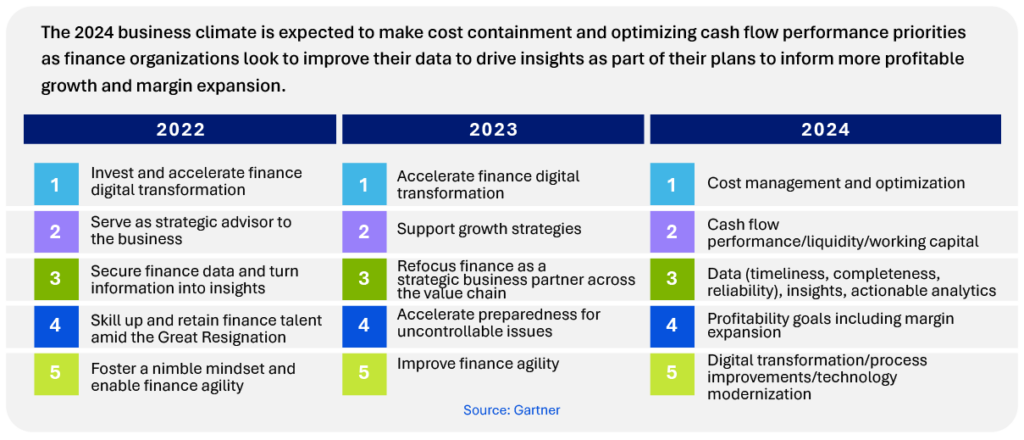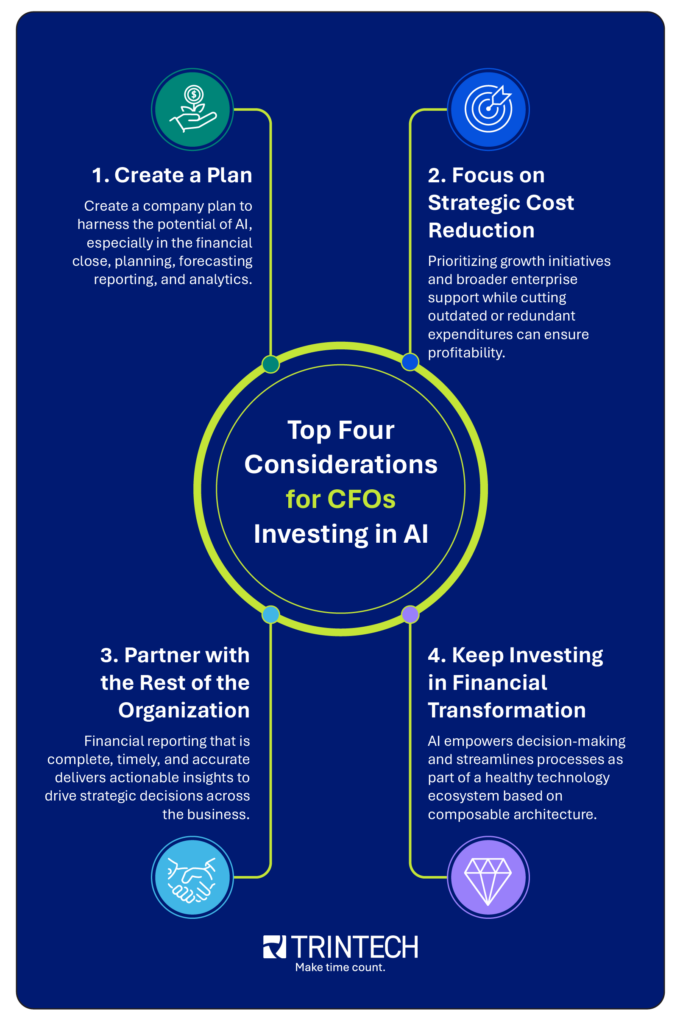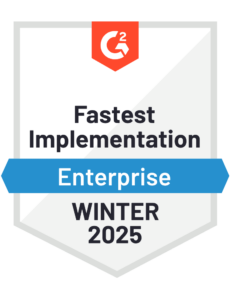How AI Helps Solve Challenges Facing Finance and Accounting Teams Today
Blog post
Share
We’ve all heard the adage: in times of uncertainty, focus on the necessities (bottled water and batteries, anyone?). Finance and accounting teams today are facing significant challenges that bring about an air of uncertainty, including inflation, projections for stalled economic growth, talent gaps that continue to widen, and geopolitical conflict. As a result, organizations are shifting focus to fundamental areas—such as cost management and process optimization—to ensure that they can remain agile, profitable, and able to support the larger business.

Outside of the above challenges, the emergence of AI will be the most substantial disruptor to business success in the years to come. According to PwC’s 22nd Annual Global CEO Survey, nearly 3 out of 5 global CEOs believe AI will have a larger impact on the world than the internet revolution, with the potential to add $15.7 trillion to global GDP by 2030. That’s more than the current output of China and India combined.
Artificial Intelligence: Redefining the Finance Function
AI presents a massive opportunity, and organizations are taking notice: the corporate accounting industry now faces widespread demand for the application of AI across the financial close and FP&A processes. While providers like Trintech have promoted automation as a solution to many market problems for decades, finance and accounting leaders are now trying to understand how AI and automation technologies can properly address the challenges they face.
This is especially important as CFOs have seen their roles evolving with the advent of AI, which has brought easier access to huge amounts of data used to evaluate business processes, opportunities, and threats. In addition to accurate financial reporting, CFOs are now expected to provide actionable information in real time—not only with the final monthly close numbers. Accounting teams must look backwards in their historical reporting, while also being able to look forward with accurate prediction to gain a competitive advantage—and AI can help.
How to Take Advantage
It’s not enough to simply deploy AI into the existing process if that process isn’t already optimized and automated. To best understand how AI can revolutionize their financial close process, finance and accounting teams need to start by aligning goals and best practices. The next step is to trust automation software to handle repetitive and menial work, allowing for greater human focus on strategic initiatives and advanced analytics. When making the choice to invest in AI, there are four key areas of focus that leadership should keep top of mind.

Download the infographic to share with your Finance & Accounting leadership and social networks!
Despite all of the uncertainty that organizations today may face, one thing is for certain: AI is here to stay. Processes built on automation are soon to become the new standard—leaving organizations with manual methods behind the curve. Learn more about artificial intelligence and its impact on finance and accounting teams with our latest whitepaper.








